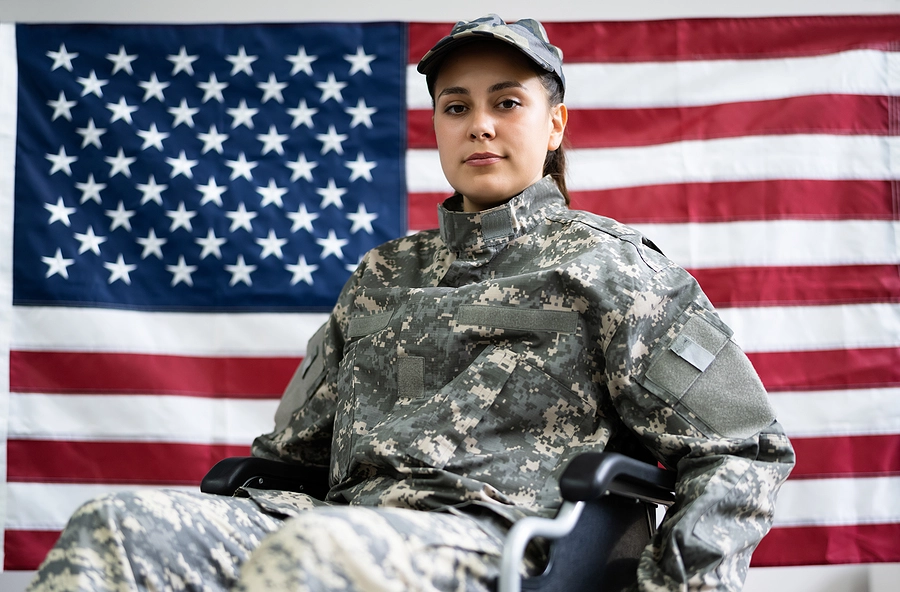Understanding and Winning Your VA Appeal with VetLaw
If you were denied benefits or disagree with your current disability rating, you need to know all you can about winning a VA appeal. At VetLaw, we help veterans pursue the benefits that they’re entitled to. We can help you cut through the red tape and ever-changing regulations.
Some of the most common reasons for a denial of your disability claim are missing information and the failure to establish a service connection. Whatever reason the VA gave you, we can help. Contact us for a free case review.
Can a Lawyer Increase My Chances of Winning a VA Appeal?
Yes. Keep in mind that no law firm can guarantee that you will win your VA appeal. If a lawyer tells you that, they’re not being truthful. Because in the end, it’s the decision-makers at the VA who determine if you’re eligible for benefits or an increase in benefits.
If you were denied VA disability benefits, you’re probably at your wits’ end. You filled out every possible form and submitted hundreds of pages of medical records. After all that effort, you’re left wondering, “What did I miss?”
At VetLaw, we’ll make sure that your appeal is as strong as possible. We know what the common pitfalls are in the appeal process and we know how to help you avoid them. We’ll pinpoint any holes in your documentation. Sometimes, all it takes is one hidden or overlooked piece of information to greatly increase your odds of winning a VA appeal.
Another benefit of working with our firm is that we take over the tedious paperwork. All you have to do is attend your medical appointments and focus on your well-being.
FAQ: HOW WILL INCARCERATION IMPACT MY VA DISABILITY BENEFITS?
Five Steps That Veterans Can Take to Help Their Chances of Winning a VA Appeal
VA appeals take time, and you need your VA disability benefits now. Here are five steps you can take towards winning a VA appeal.
1. Consult With a VA Accredited Lawyer to Determine the Best Course of Action
If you received a VA denial dated on or after February 19, 2019, you may have three options to appeal:
- Supplemental Claim
- Higher-Level Review
- Board Appeal
You may not be eligible to pursue all of these options. And depending on the nature of your denial and the specifics of your disability, one option may be more favorable than another. We can help you choose the most efficient plan of action for your appeal so you don’t waste any more time and effort.
If you received your denial prior to February 19, 2019, even though the Legacy Appeals process has ended, you are still able to file an appeal via a Supplemental Claim. Our lawyers can help you ensure that you have filed the necessary documents correctly.
2. Don’t Underestimate the Importance of a Lay Statement
While your appeal must be based on information from professionals, family and friends can still provide important testimony. A lay statement should be submitted by someone who knew you before your military service. They can attest to what your life was like before your military service and how you’ve changed because of your service-connected condition.
A lay statement from your spouse (or even ex-spouse) is especially helpful because they can describe intimate details about your daily life that others cannot. Parents, siblings, friends, and your employer can also provide insightful testimony about your disability.
3. Get a Buddy Statement
A buddy statement or buddy letter is a firsthand account, typically from a fellow service member. The official term for a buddy statement is a “Statement in Support of Claim.” You should get a buddy statement from someone who served alongside you, can attest to when and where you served, and has firsthand knowledge of the in-service occurrence that caused your disability.
A buddy statement can be crucial if there are missing service records. In some cases, a buddy statement provides the missing link that is needed to establish a service connection.
4. Account for Any Secondary Service Connections
If you’re focused on your primary disabling condition, you’re probably not giving much thought to any secondary service connections. Or, you may not even be aware that a disability qualifies as a secondary condition. Mental and physical disabilities often have a medical link. Your disability rating may increase if all of your service-connected conditions are taken into account.
5. Establish a Strong Service Connection
As a disabled veteran, you are reminded of your service connection each and every day. Details that are obvious to you need to be spelled out to the VA.
When the VA reviews your appeal, they’ll be looking for specific information. Make sure they don’t have to dig through hundreds of pages to find what they need. Winning a VA appeal hinges on the nexus between your diagnosis and the event that caused your injury or illness.
Get Legal Help for Winning a VA Appeal
As a veteran-owned firm, we have insight and experience that other firms do not. We know what it’s like to serve and what it’s like to return to civilian life. To us, you’re more than a diagnostic code or a disability rating. You’re a veteran whose life was changed by a service-connected disability. To increase your chances of winning a VA appeal, contact us today.







